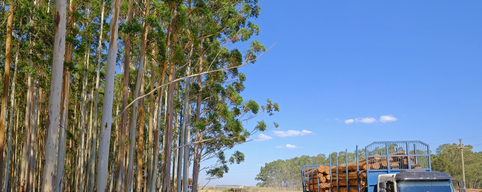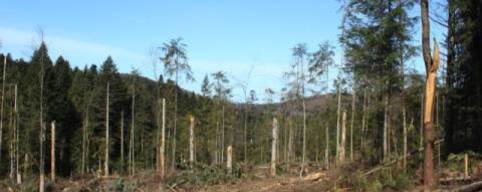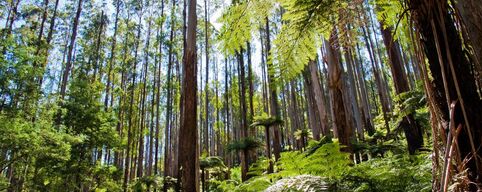

Environmental activists in Tasmania's Central Highlands are making headlines as they strive to protect threatened species such as the swift parrot, masked owl, and Tasmanian devil. Led by well-known advocate Violet CoCo, these activists are using direct action to oppose habitat destruction caused by ongoing logging activities.
The area, rich in biodiversity, is recognized as Palawa/Pakana Aboriginal land and has become a battleground for environmental conservation efforts. Activists argue that the logging practices employed by Forestry Tasmania are not only destructive to the environment but also disrespectful to the region's indigenous heritage. The concern is that the clear-felling and burning of native forests will lead to the permanent loss of critical habitats.
The activism of Violet CoCo and her fellow protesters has gained increasing attention, particularly during the current federal election season. By staging demonstrations, the group aims to spotlight the urgent need for policy changes regarding environmental conservation. CoCo has consistently voiced her concerns, emphasizing the crucial importance of preserving these ecosystems. She stated, 'The loss of these habitats would be tragic. Our protests are essential to bring change.'
The urgency in their actions underscores a broader call to action for immediate intervention. These protesters are rallying for substantial policy reassessments to halt the detrimental impacts of current logging practices. The activists' efforts reflect a profound commitment to preserving not only the natural environment but also the cultural and historical context of the land.
This form of direct action highlights the environmental activism landscape, showcasing how grassroots movements can influence public discourse and press for governmental change. It reinforces the idea that activism can play a pivotal role in shaping policy and ensuring accountability when it comes to environmental stewardship.
The Bob Brown Foundation, alongside activists like CoCo, has been vocal in urging the government to reconsider its stance on logging policies. They argue that sustainable practices must be prioritized to maintain Tasmania's unique biodiversity for future generations.
As the debates surrounding environmental policies continue, the voices of activists serve as a critical reminder of the delicate balance between development and conservation. Their relentless advocacy underscores the importance of maintaining ecological integrity and respecting indigenous lands in policy-making processes.
The actions in Tasmania’s Central Highlands are part of a broader global movement seeking to strike a balance between advancing human interests and preserving the natural world. By drawing attention to these issues, activists are pushing for collaborative solutions that recognize the interdependence between humans and their environment.
With increased awareness and public support, there is potential for meaningful policy shifts that prioritize conservation while addressing the economic needs of local communities. It presents an opportunity for leaders to demonstrate commitment to sustainable development and environmental protection.



